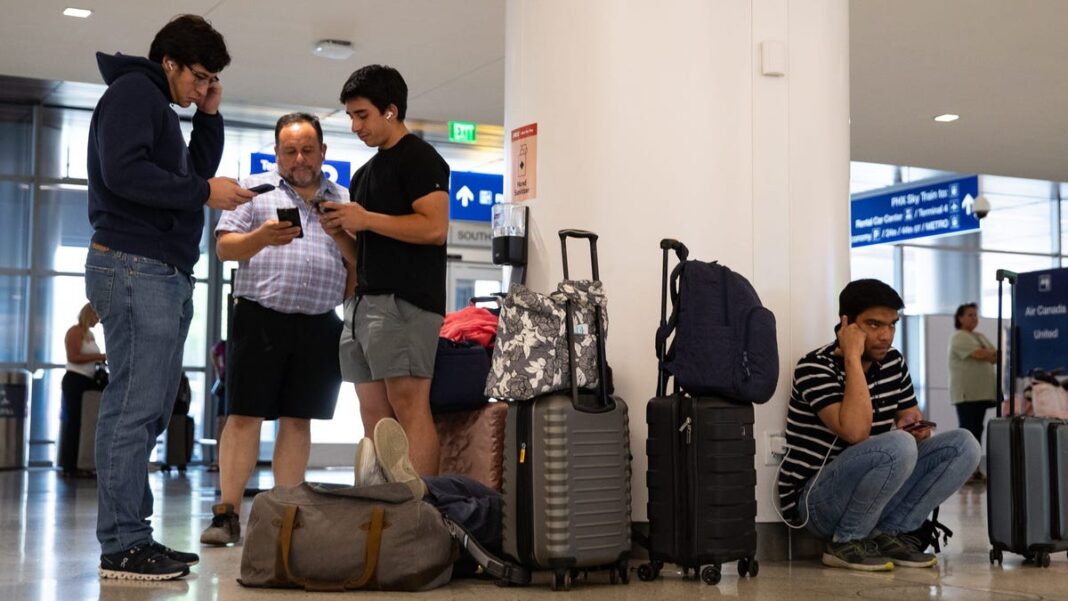Airlines have more responsibilities than you might realize if your travel plans go awry
The Department of Transportation has implemented a new refund policy for airline passengers.
If your flight is postponed or canceled for over three hours domestically or six hours for international flights, you are entitled to an automatic refund.
“Travelers should receive refunds effortlessly when airlines are at fault,” Transportation Secretary Pete Buttigieg remarked when discussing the new regulation this spring. “This rule establishes a new expectation that airlines must quickly refund their customers.”
Some aspects of this new rule began to apply as early as May when the Federal Aviation Administration’s funding was renewed, but other parts took more time to be fully enacted. Buttigieg highlighted the implications of these rules for both travelers and airlines in a letter to airline executives in July.
Here’s what travelers should know regarding how the new regulations function and what they are entitled to.
Refunds for Cancelled Flights
Before the new regulations were put into place, airlines were already required by the DOT to provide refunds to passengers when flights were canceled, as long as those passengers opted not to take alternative flights offered.
The DOT’s latest guidelines make it clearer how and when these refunds must be issued. Airlines are now obligated to process refunds automatically, meaning passengers do not need to make a separate request. For credit card transactions, the refund must be completed within seven days; for other payment methods, it’s 20 days.
Refunds must be issued back to the original payment method, and cannot be substituted with airline vouchers or credits unless the tickets were paid for that way. Additionally, the refund amount must equal the full value of the unused ticket, excluding any segments of the itinerary that were completed prior to cancellation.
Refunds for Delayed Flights
The updated DOT policy also clarifies what counts as a significant delay. The new rule explicitly states that passengers can seek refunds if their flight is delayed by three hours for domestic flights or six hours for international flights, covering both departure and arrival delays.
The policy also addresses “significantly changed” flights, which the DOT defines as those involving different airports for departures or arrivals, increased connections, downgrading of service class, or shifts to less accessible flights for individuals with disabilities.
All the refund conditions that apply to canceled flights also apply to delayed flights, meaning passengers are entitled to a full refund back to the original payment method automatically.
Refunds for Baggage Problems
Passengers are also entitled to a refund for checked bag fees if their luggage does not arrive on time at the destination. According to the new DOT rule, bag fees become refundable for travelers who file a claim for mishandled baggage, provided that their luggage is not delivered within 12 hours on a domestic flight or 15 to 30 hours for international flights based on distance.
Reimbursement for Airline Fees
The regulations also mandate that airlines must refund fees for services like in-flight Wi-Fi, seat selection, or entertainment if passengers paid for them but they were unavailable or inoperable during the flight.
Exceptions for Medical and Government Travel
Travelers will also gain access to airline credit valid for a minimum of five years from the issue date if they cannot travel due to a government restriction or medical advice regarding a serious communicable disease after they booked their flight. Airlines may require documentation to support these requests, although this part of the policy will not fully become effective until May.
(This article has been updated to fix a typographical error.)

